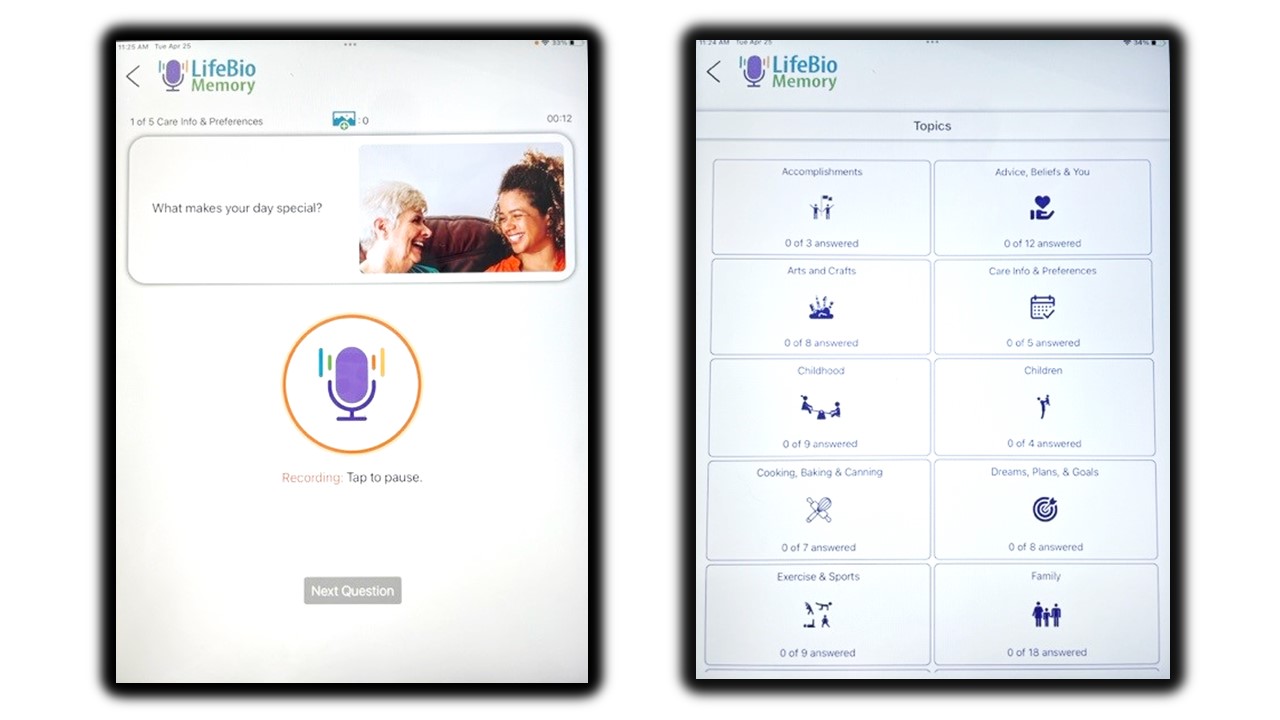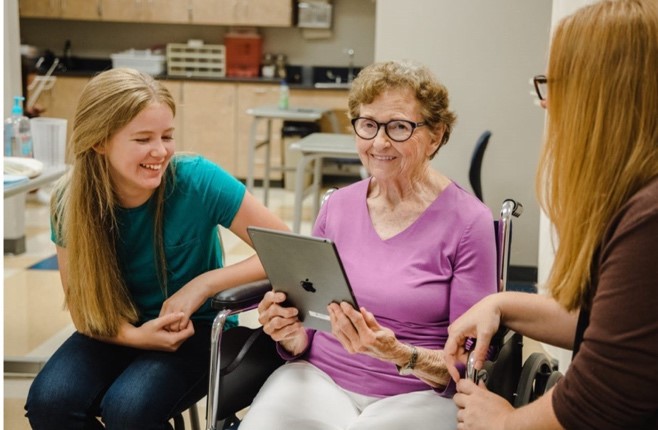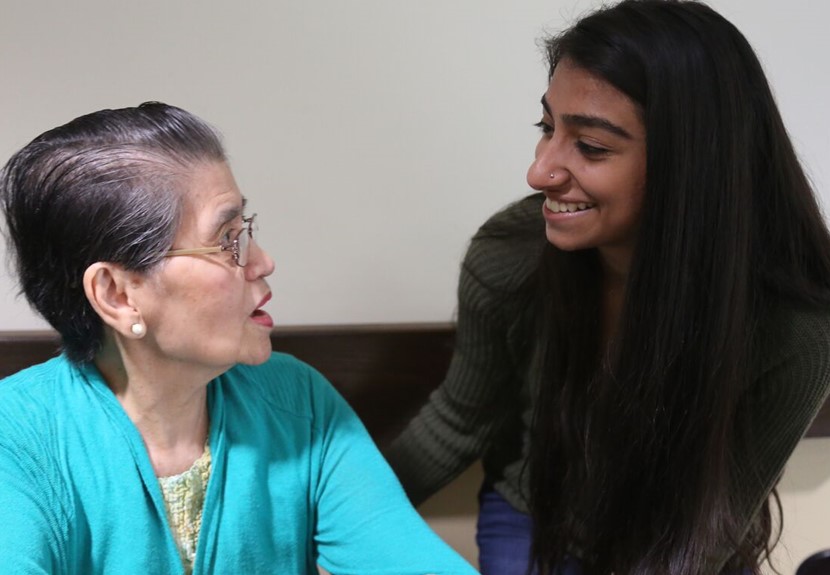Reminiscence Therapy- The Treatment of Storytelling
Did you know that you can provide feelings of comfort and safety to a loved one with dementia or other forms of memory loss simply by asking questions or discussing things about their past? It's called reminiscence therapy, and it's easy and effective!
READ MOREEmotional Wellness- Part 2 of 2
(This is a continuation from LifeBio’s blog on Emotional Wellness from Tuesday, June 30th.)
Storytelling and Emotional Wellness
Being a storyteller allows us to have control of the story we share. When we are allowed to construct a story, we get to determine the important parts. We can choose what to include, and we can filter out things that we deem smaller or less significant. We can find the deeper meaning in it all. We get to determine the significant characters, the important events, the turning points that we tell, and how things shape us. While living through events, we can interpret them through storytelling. We can decide if and what we want to share from our story with others on our journey. Jonathan Adler, PhD and professor of psychology, says, “You may not have control over all your circumstances, but you can choose how to tell the story.”
READ MOREHow to Avoid Cognitive Decline
Do you ever walk into a room and suddenly cannot remember why you went there in the first place? Have you ever been talking and mid-sentence you draw a blank as to what you were going to say next? Do you ever misplace simple everyday items, such as your eyeglasses or keys? Are you ever left tongue-tied trying to think of the word you want to say, while you know the meaning you want to convey but the word just isn’t coming to you?
READ MORECommunication Tips for Talking to People Living with Dementia and Alzheimer’s
Do you know someone living with Alzheimer’s or another form of Dementia? If so, it can be difficult to see memories and realities slipping away from our loved ones. However, that does not mean that we no longer want to engage with them. In fact, getting them to participate in conversation can help them to prolong their memories and engage their minds. It can also be an opportunity for them to feel successful, be happier, and even decrease negative health effects like feelings of depression.
READ MORE15 Questions You Could Ask a Person Living With Dementia Over the PHONE
It may seem tough to communicate with a person living with Alzheimer's Disease or other related dementias by phone. Here are two tips for starters.
READ MORE"We Need to Talk" - All About Reminiscence Therapy
For thousands of years, people have shared stories around the campfire, the hearth, and the kitchen table. We human beings are practically pre-programmed to enjoy telling and sharing our stories. Taken in its simplest form, Reminiscence Therapy (or RT) is recalling and discussing the people, places, and events that shaped us. More than merely retelling the same old story, however, Reminiscence Therapy delves deeper and is used as a therapeutic tool that improves mood, reduces the use of pharmacological interventions, and improves quality of life. Plus, it’s fun!
READ MOREKeys to Successful Communication in Dementia Care
Dementia Changes People
Your loved one or resident is changing. Your once gregarious, “life of the party” spouse is now reticent and restrained. Your college educated, thoughtful father is now forgetful and impulsive. And – perhaps the hardest situation of all – your once gentle and caring mother has begun to angrily lash out at caregivers, friends, and even family. The manner in which you once communicated with these individuals is no longer effective. Comprehensive dementia care must consist of a new, inclusive way to share information with those individuals with Alzheimer’s and other memory affective disorders.
READ MORESense of purpose in life reduces risk of Alzheimer’s disease
Individuals who report greater purpose in their lives appear less likely to develop Alzheimer’s disease or its precursor, mild cognitive impairment, according to a recent study conducted by Rush University Medical Center. The study found that people tend to rediscover their life purpose by deriving meaning from life experiences.
READ MOREBenefits of Reminiscence for Memory Care
This white paper will summarize the large body of research documenting the effects of reminiscence with older adults. These studies reveal that reminiscence is effective for people with Alzheimer’s disease and other forms of dementia.
READ MORE5 Tips for Interviewing Mom & Dad
5 Tips for Interviewing Mom & Dad
1. Don't delay and don't talk yourself out of it. It's time to capture mom's story in print, on video, via audio, or writing via the web. Mom's life story or dad's life story is far more interesting than you can ever imagine. Really and truly, your own parents can tell you things that no one else can share.
READ MORE









